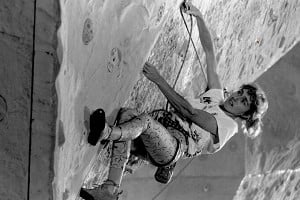
The British climbing scene is very exciting at the moment. It is quite clear that as a sport it is developing at a rapid rate and none more so than ParaClimbing. For many climbers, this aspect will be almost unknown and to non-climbers, the thought is baffling as climbing without a disability seems hard enough.
The GB ParaClimbing team have been performing incredibly well this year, but are still struggling to get funding and the recognition they deserve. I currently coach a few ParaClimbers, including GB team member Nick Middleton. For me, this aspect was a new and exciting prospect. Getting to understand what was achievable and getting the climbers to be more aware of their body and how capable they are is the challenge. The climbing style is very different given their specific disability, but seeing a climber, young or old, top out a 6c lead with one arm is the most inspiring performance I have seen in the climbing world to date!
Following some of the team’s recent success, I caught up with world ParaClimbing champion, Fran Brown, GB climber Nick Middleton (who achieved 2nd place in the IFSC World Championships this year) and team manager Graeme Hill to find out more about the team, their achievements this year and the plans for 2015.
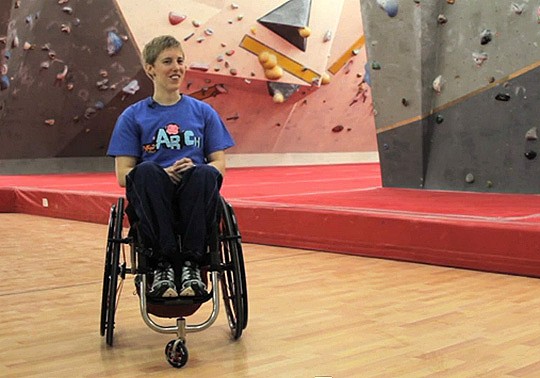
Fran, congratulations on another win in Gijon, it is good to see other team members joining you on the podium too! You have been competing as world champion for two years now, does this affect your performance at all?
Thank you! No, I don't think being world champion has changed my approach towards competitions. Being reigning world champion does add a bit of pressure to some competitions as people expect you to perform well.
To stay on the top spot are you constantly adjusting your training to keep ahead of the competition?
I don't deliberately change my training because of other competitions however I'm always looking for ways to add to my program and enhance it. My training had definitely progressed in the last two years and I have spent time analysing the results I'm getting from each area of training to see what can be improved. Due to the individual nature of different disabilities there is often little point comparing training programmes between para climbers anyway.
What does a typical week of training look like for you?
In the summer it's competition season and in the build up to that I train approximately 30-40 hours a week. This is a mixture of structured climbing sessions, gym work and cross training such as swimming. My program is periodised and so exactly what I'm doing at any one time can vary depending on how close to a major competition I am. In the winter it's off season I concentrate on climbing for fun, trying to get in as many outdoor trips as time and weather allow.
As I mentioned, your team mates also performed very well in Gijon too, do you train together as a team?
Not that often. As a team we are scattered around the country so it's both expensive and inconvenient to meet up that often. Several team members have personal coaches too and due to the individual nature of the sport it works well training alone. That doesn't mean that we don't share knowledge though.
Why do you think Team GB performed so well?
All the team members competed really well on the day and as a nation we are lucky enough to be able to enter a large team.
ParaClimbing is starting to become far more popular in the UK and I have no doubt that your performance and publicity is to thank for this. What steps do you think should be taken, if any, to develop ParaClimbing in the UK?
Running the para climbing series at weekends would encourage more adults to attend who may have work or study commitments that mean they cannot do week days. A separate kids’ event could also encourage more youngsters to enter the competition side as they wouldn't have to compete against adults. As would having a youth team set up to address and develop appropriate training for younger climbers. Obviously a bigger budget would help but that is always going to be limited in a new sport.
Is there a lot of funding for you and the team to represent your country in the IFSC world cups?
No. There is a real lack of funding which does limit team members’ participation
How can this be improved?
Possibly more team sponsors, more publicity and support from the climbing walls and community.
What is next for you? Are you training for more competitions this year?
My competition season is over for this year so now I am trying to get in some outdoor trips to finish some projects. I also have my winter training and a few filming projects.
What are your goals for next year?
I'm not sure yet. Possibly concentrate on the European Championships and some outdoor projects. I'll decide in the New Year when the competition schedule comes out.
Finally, what words of advice can you give to those wanting to get into ParaClimbing or for those who want to make the team?
Give it a go. We are a friendly team and the British comps are laid back and fun. If you want to take it seriously, find a coach who can advise on a structured training program and don't over train!
As aforementioned, some of Fran’s team mates also did very well in Gijon this year. Nick Middleton is one of them.
Hi Nick, a huge congratulations in Gijon - 2nd in the world!
Hi Rob and thanks. I still can’t believe it myself. The lead up was intense, but very pleased with the result!
How did you get into climbing? I mean for some people looking to start a sport with one arm, surely climbing is not the most obvious choice?
Partly, just keeping up with my brother and sister. The first time I remember was in the scouts, and was on sandstone in the Tunbridge Wells area I think. It would have been in the late 80’s. My scout group were incredibly supportive and encouraged me to join in all sorts of activities.
For those not familiar with para-climbing, please could you tell us more about it?
ParaClimbing can be broken down into various sub-categories, but essentially it is climbing with a disability. Taken up by people who were born without a limb, like me as well as those who have been less fortunate and may have been involved in accidents requiring limb amputation. These fall into two key categories “arm amputee” and “leg amputee”. This can also be said for visually impaired people who have problems with their sight. There is also one other category currently within ParaClimbing and that is “NPD”, “Neurological Physical Disability”. This is quite a complex category. Some people can be affected from birth and some through accidents later on in life. My understanding is limited, but the main areas that I know of are the motor skills, the brain's ability to control movement, as well as the brain’s ability to control memory and speech. There are also combinations of the two.
Para climbing is becoming far more popular in recent years, how do you see it developing in the future?
Having seen how people responded to the ParaClimbing World Championships/Masters in Gijon, Spain, I’d say it will gain momentum very quickly given the chance. Even as a ParaClimber myself, watching some of the other guys climb, was truly inspirational! I think we will see a solid rise in numbers year on year. Paris 2016 is the next worlds I believe, so a pretty good time to get involved.
Before you headed off to Gijon I saw that you were starting crowd funding for your trips and training. What sort of funding is in place at the moment?
I started a funding page to make it easier to attend important training sessions and also to purchase essentials for the comps. The team itself has agreed sponsorship that is organised through the BMC. For example our kit sponsor is Wild Country. It’s awesome to have a well-known brand on board. We can also have personal sponsors to help us out with training and clothing.
How do you think this can change?
Well hopefully, now I have survived almost a whole season competing internationally with very good results, perhaps I can move towards companies, and with any luck get them on board and back me. I would like to see big corporate companies investing in ParaClimbing as it really is taking off. If current and potential ParaClimbers can be inspired at an early age then the sport will produce even more high class athletes in the future.
Perhaps seeing more ParaClimbing clubs opening will encourage a greater attendance all round, in both national and international competitions.
Now I am coaching another up and coming para-climber and we are looking at starting a squad, but what would your words of advice be for those that have just started climbing or are looking to get into a sport as a para-athlete?
As I said before, I got involved in climbing through the Scouts. Now there are climbing walls everywhere; my advice for anyone is, just give it a go! If you are young you may need an accompanying adult. There are loads of awesome kids clubs to choose from. The most important part is to enjoy it. There are also plenty of opportunities for adults too. If you can pass your belay test at a centre and have a climbing partner, you’re all set. If you are entirely new to the sport and you feel you want to improve, invest in some coaching! It’s money well spent. Most climbing centres have a bunch of very helpful staff that can assist you in literally reaching the top.
So what is next for you Nick?
It looks like we need to start a local ParaClimbing club. I’d certainly like to encourage potential newcomers to the sport, ready for 2016 Worlds.
Lastly, I got the chance to speak with team manager Graeme Hill to discuss funding and the future.

Hi Graeme, congratulations on your team’s recent results in Gijon and in Sheffield. For those unaware, what is ParaClimbing and what is your role with the team?
ParaClimbing is the title bestowed upon the sport of competition climbing for disabled people. My role is managing the team in partnership with my assistant Andy Coltart with roles including organising training, writing reports, organising oversee travel and accommodation, developing and promoting domestic competitions and ensuring that team members are looked after.
How long has the team been running now?
The team has been running for 3 years.
Having spoken to many para climbers, it seems like an undersubscribed series. Do you think that climbing for people with disabilities seems like too big a challenge? What can the climbing community and existing para climbers do to change this perception?
Yes - there are a mixture of things. Traditionally competition climbing has not been promoted towards disabled people, but this has to be viewed in a historical context. Sport and competition participation amongst disabled people is much lower so organisations like the English Federation of Disability Sport and Sport England are doing a brilliant job at changing this but are focusing on some sports more than others. Disabled People have had the opportunity to climb for a long time but this has primarily been in the taster and residential setting. This is starting to change. Many walls and providers are building up the skills to support more disabled people. Significantly the BMC is taking a lead on looking at coaching models and at they can be developed to be more effective at including disabled people. It has also been said many times by many influential disabled athletes that the London Paralympics had a huge positive impact on perceptions of disability. Currently the GB ParaClimbing team are doing a great deal to push the sport with a lot of media exposure and through social media.
For those who have certain disabilities, how can they get involved with climbing?
The domestic competitions are very open and are there for anybody to come along and have a try. The competition series can be used as a way of deciding if you want to get into comp climbing. Also coming along to the events gives you an opportunity to talk to people about the sport and what else is on offer, build up friends in the sport and just get general advice. The climbing community is much more supportive, inclusive and open these days and good solid advice can be gathered from organisations such as Mountain Training, BMC, ABC or other companies and organisations.
What advice would you give to para climbers wanting to make the GB team?
Enter the domestic series. We have a criteria for making the team which includes winning events but just as importantly you have to demonstrate drive, commitment and willingness to train and compete hard plus work as part of a team. Also work with a coach at your local wall. A number of the team members have partnered up with coaches over the last year and it is incredible to see what impact that has on climbing standards and the approach to the competition environment.
So a successful year for your team, where do you aim from here? What will 2015 have in store?
A very successful year for the team...quite incredible really. There is so much energy and drive amongst the team members it’s overwhelming. I would like to see a more structured coaching programme for the team which will be supported by increased interest from coaches and the Coaching Foundation programme. I have been attending a number of BMC coaching workshops and have learnt a great deal. Wild Country had a massive impact by sponsoring financially and by providing kit courtesy of the Wideboyz Crack Master School. Increased financial support would be greatly appreciated. There is also the possibility of the IFSC accumulating points over the series so it goes without saying that I would like to see the GB team come out top. Finally I would like to see some athletes come through from Scotland after their first event happening on November 2nd.
Finally, so that the team are more widely recognised, please can you introduce them and explain their category.
In terms of impairments they are as below:
John Churcher Blind (B2)
Alex Taylor Multiple Sclerosis
Nick Middleton Left Arm Amputee below elbow
Adam Hoolahan Blind (B1)
Phil Mitchell Right Leg Amputee
Dave Bowes Brain Injury resulting in Physical Disability
Fran Brown Spinal Injury
Reanne Racktoo Blind (B3)
Esme Harte Left Leg Amputee below knee
Singh Gallagher Left Arm Amputee
Jess Thorne Blind (B3)
Martin Healed Left Leg Amputee
Rad Breeze Blind (B3)
B1 – B3 is a classification system used by British Blind Sport B1 being the most blind.
With climbing developing at a rapid rate, now is the time to get involved with our sport and back our nation’s climbing teams. If you are or know of a disabled person who may want to try climbing, do not hesitate to get them involved.
Find more information on the GB ParaClimbing Team on their website.
If you are looking for climbing coaching, please visit http://robinolearycoaching.com/ or https://www.facebook.com/robinolearycoaching and send an email to coaching@robinolearycoaching.com to enquire about his services.
HotAches Productions have produced a film about Para Climbing called 'Enabled' that will premier at Kendal this month, with the support of Wild Country and the BMC.

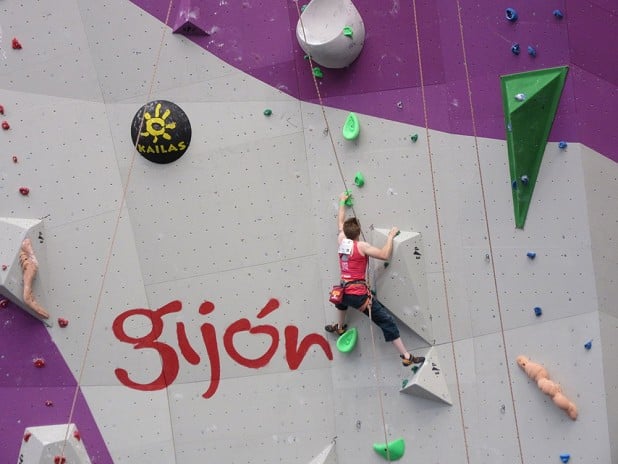
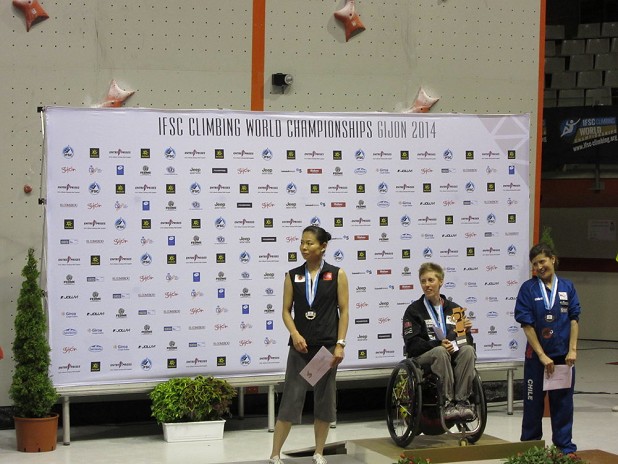
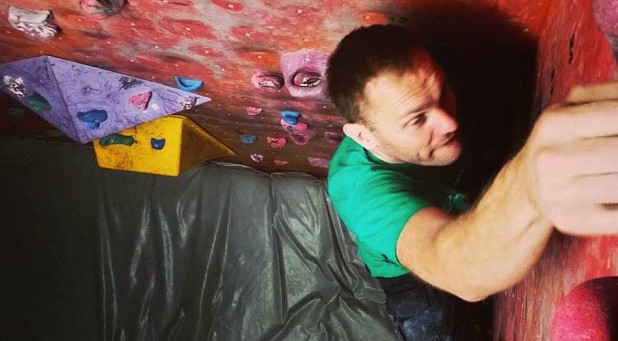
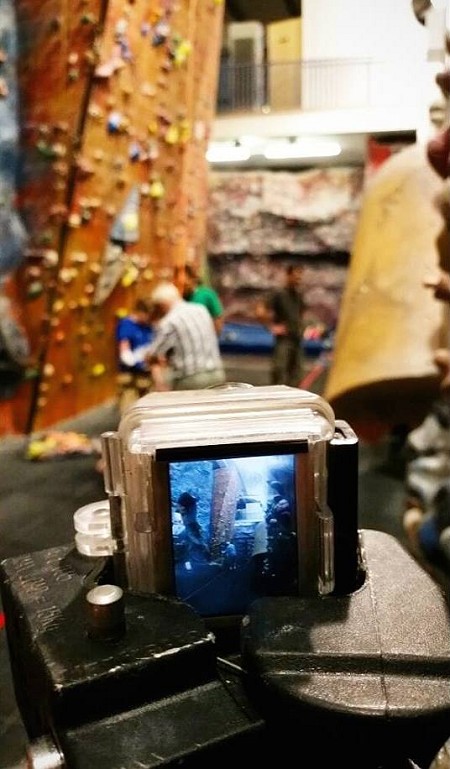
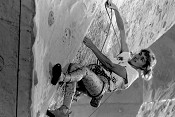
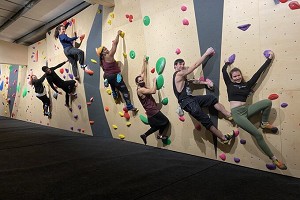
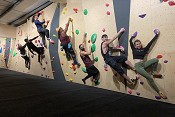
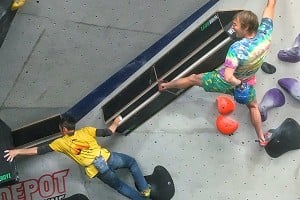
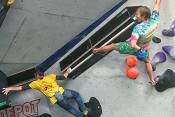






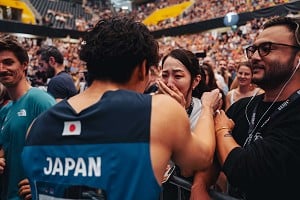
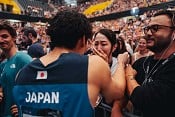
Comments